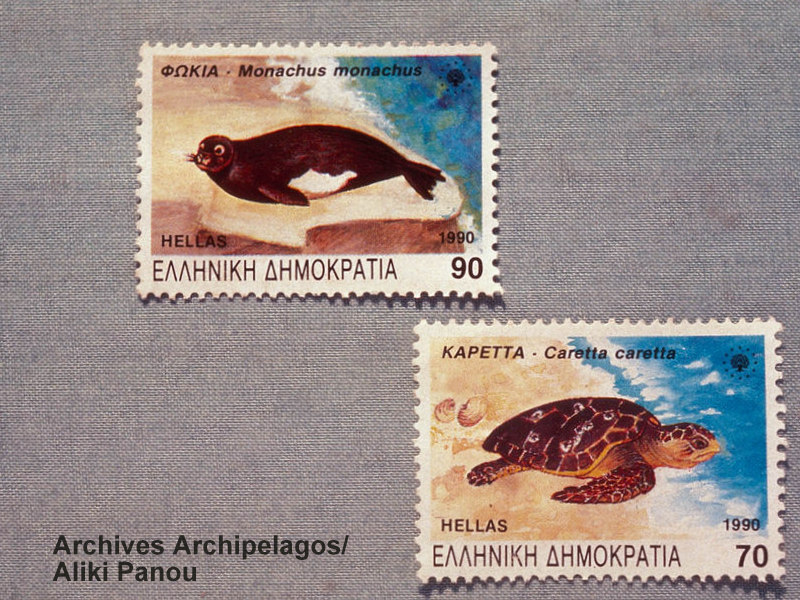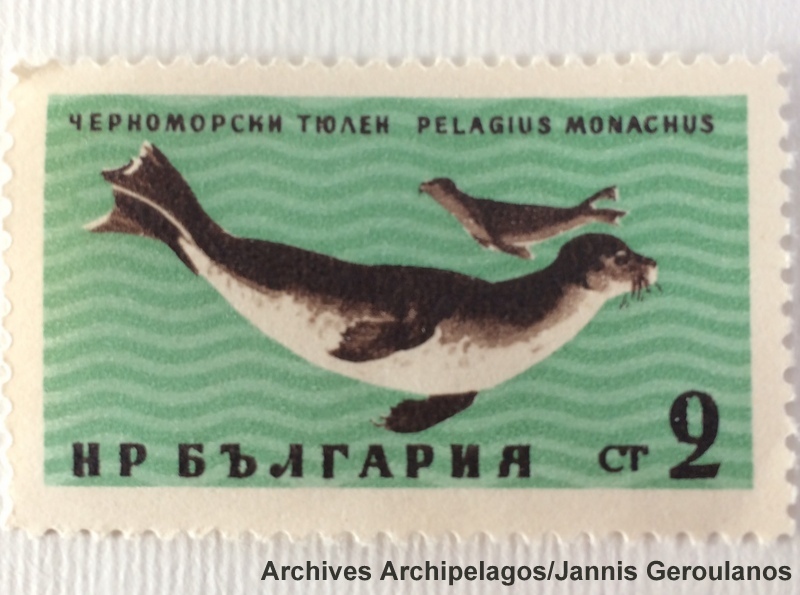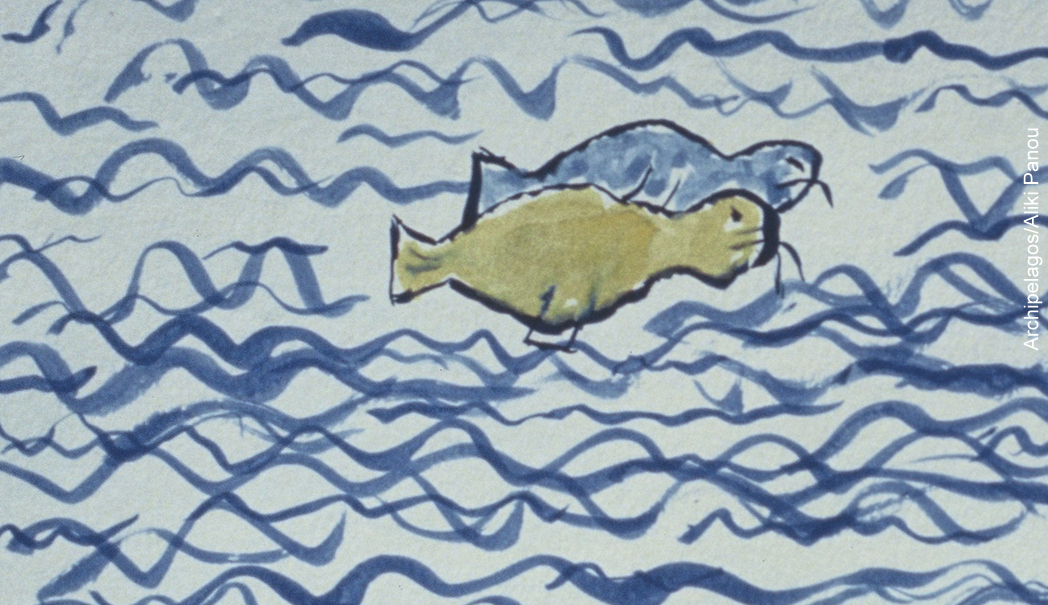The most effective long term method to successfully make the public sensitive to environmental conservation is, undoubtedly, environmental education in schools where the active citizens of tomorrow are formed.
Thus, one continuing, primary concern has been supplying detailed information through environmental education programmes in schools but also in various other institutions.
For us this is a permanent activity, done either on a voluntary basis or within the framework of funded programmes.
Some examples are listed below:
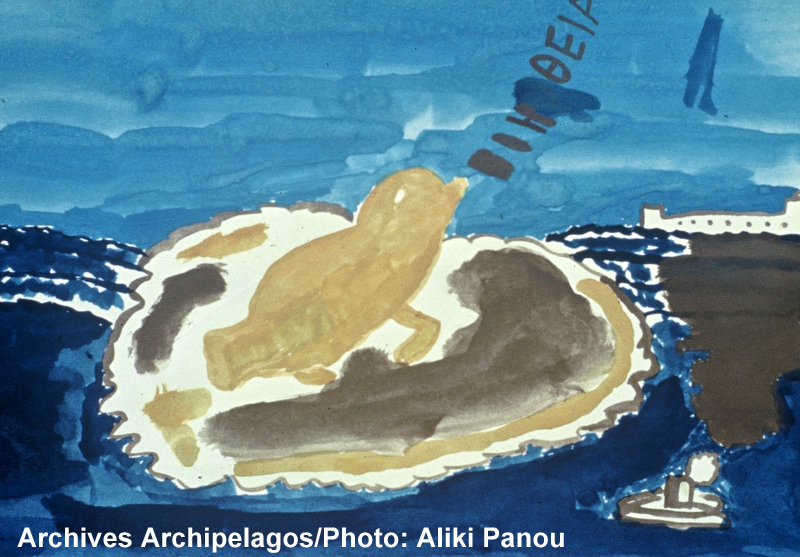
In 1985, even before Archipelagos was founded, we were giving lectures in primary schools, gymnasiums but also in kindergardens on Kefalonia and Ithaca regarding the endangered Mediterranean monk seal and other marine topics – at a time when the term «environmental education» was widely unknown in the schools of Greece.
We also participated in several environmental education programmes in schools in Athens, giving lectures on the monk seal.
It is worth mentioning that the children’s drawings displayed here were created under the supervision of Ms. Sofia Kastrisiou who studied arts in Florence, Italy.
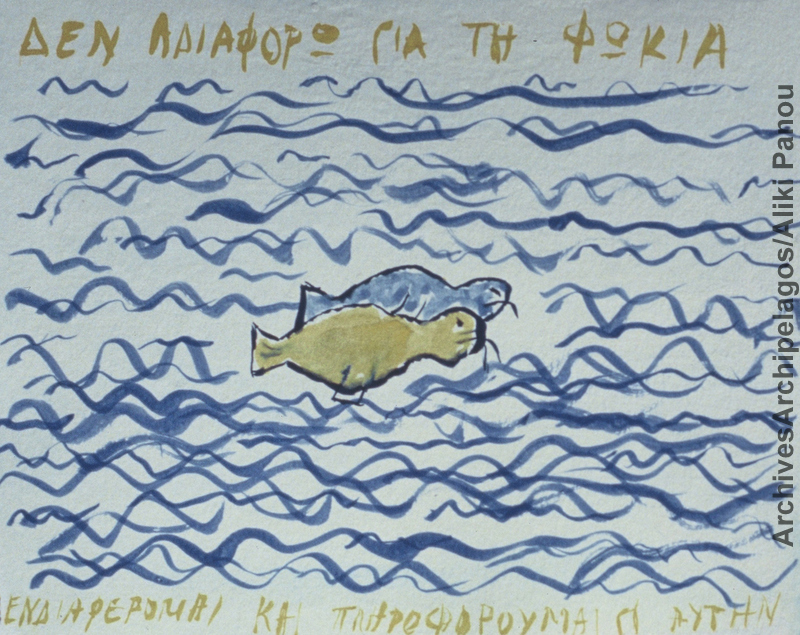
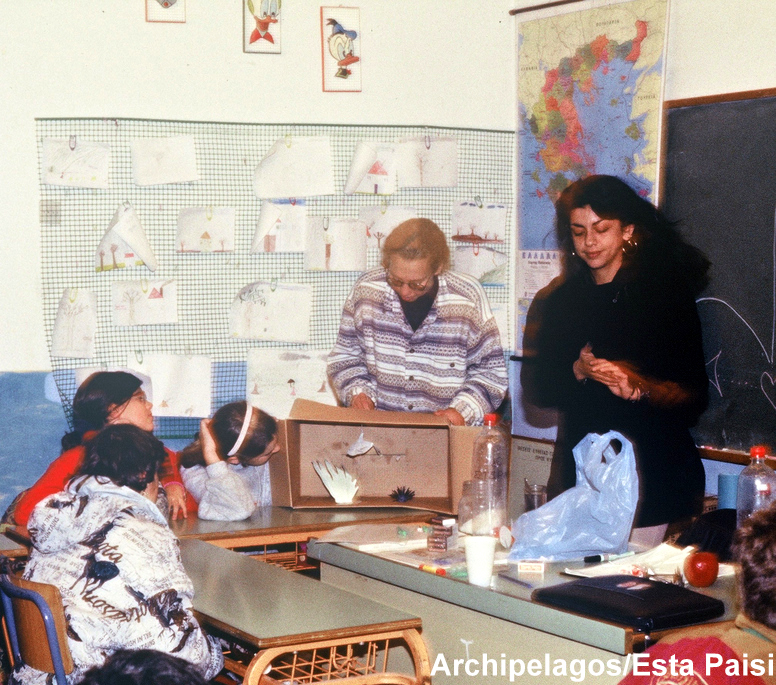
In 1995, we ran a weekly environmental education programme in the primary school of North Ithaca concerning the marine environment and how it functions, with examples of marine life. The box in the picture, representing the marine environment, was almost empty when we started but was filled with all kind of marine life very soon – including a mermaid! (WWF Project GR0034.01 «Conservation programme for the Ionian: Activity 1: Kefalonia & Ithaca»).
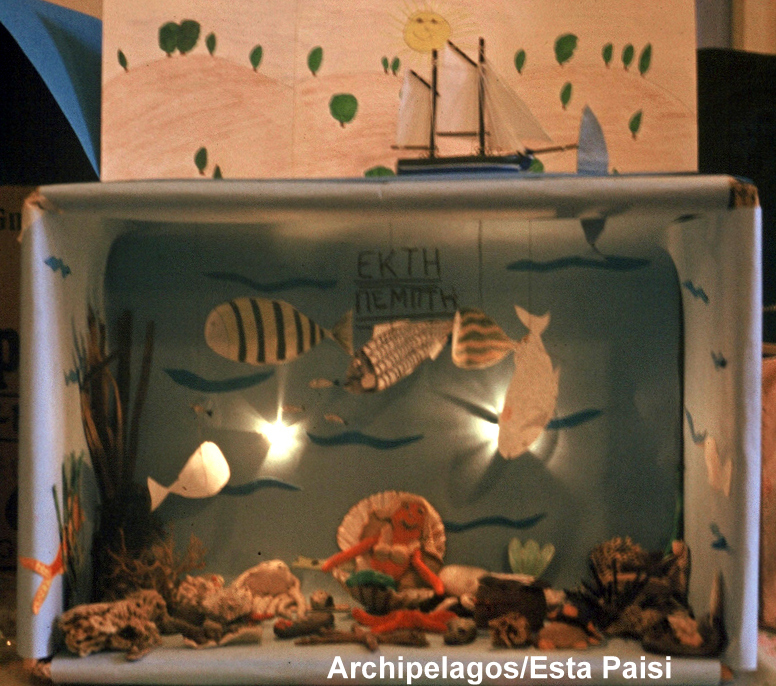
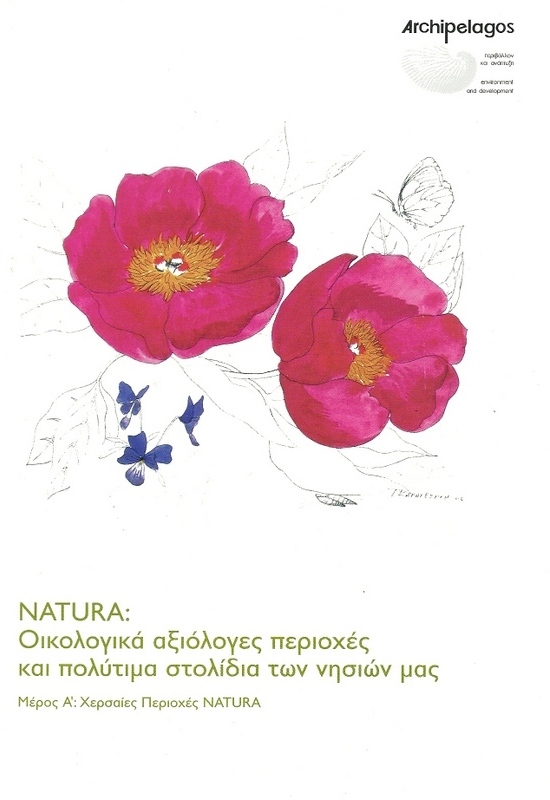
In 2007, we created informational material on the five ecologically important areas of the central Ionian Sea (NATURA sites) for educational institutions of Kefalonia & Ithaca islands. The material consisted of one booklet for the terrestrial and one for the marine NATURA sites of the area along with one poster for each theme and a series of slides accompanied by a catalogue for educational staff. After 43 oral presentations on the subject, we distributed the material to numerous schools, to all (former) Municipalities, to the sailing club for young people, to various educational institutions and to the departments of the Technical University of the Ionian Islands in Kefalonia (EU Community Initiative LEADER+).
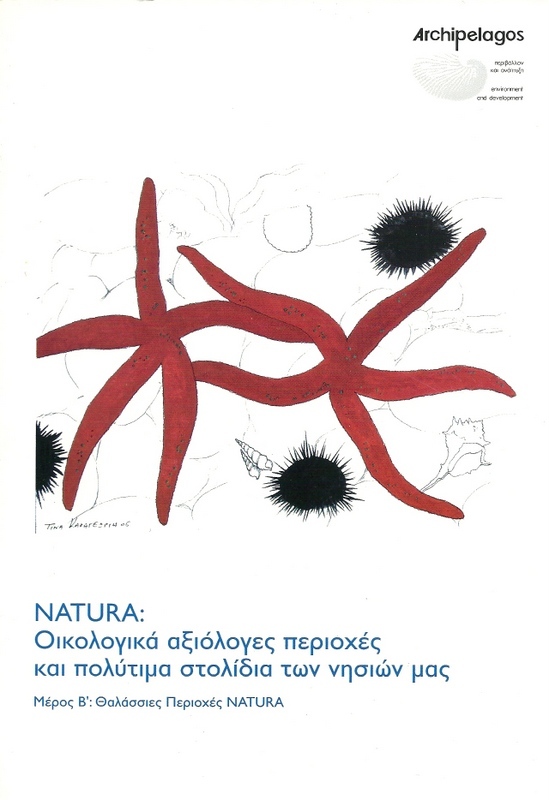
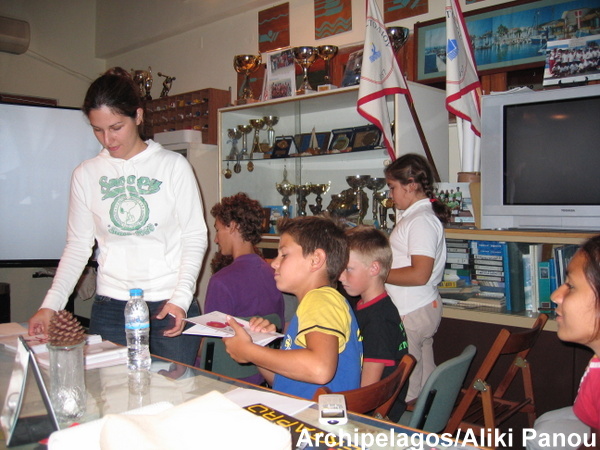
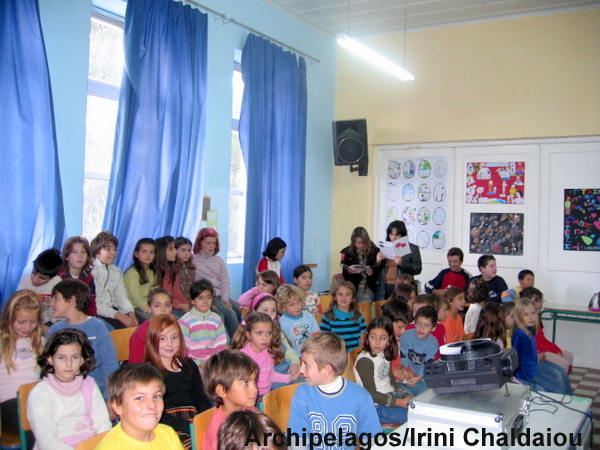
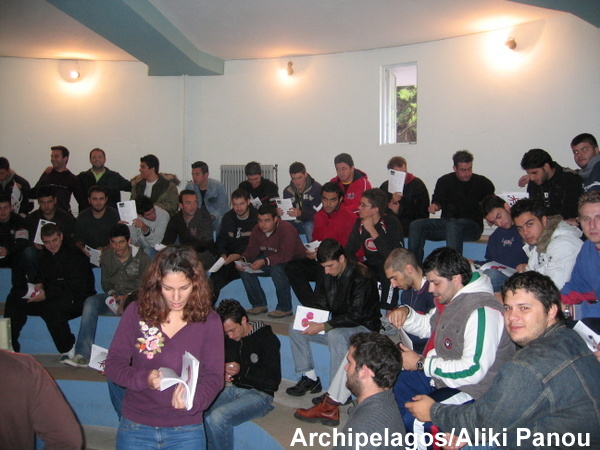
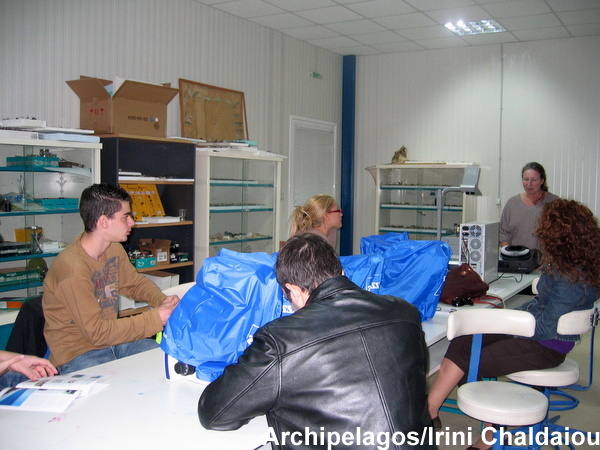
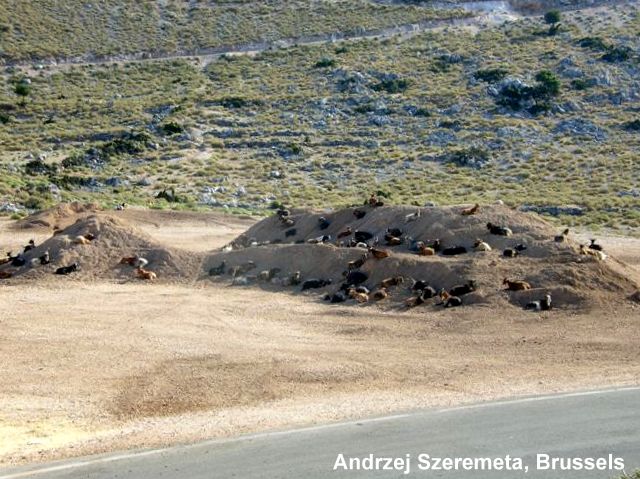
In 2008, we organized the annual meeting of the «European Network of Organic Agriculture Students» on Kefalonia island. We ran a full programme for one week, the main topic being traditional farming methods and conservation of the natural environment. At the end of the programme, a one-day seminar with lectures by experts on specific topics was held (picture right).
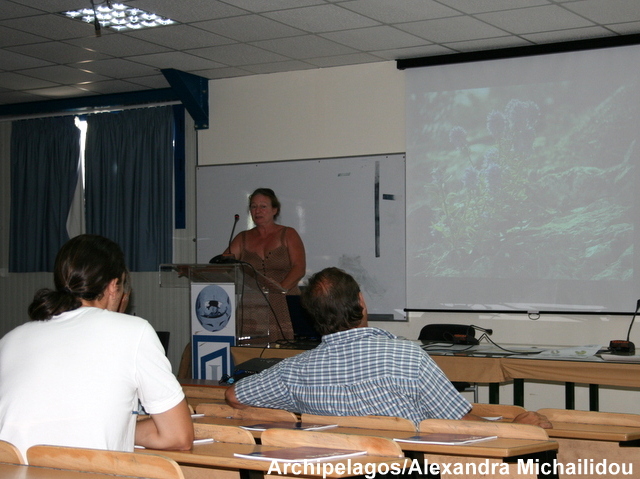
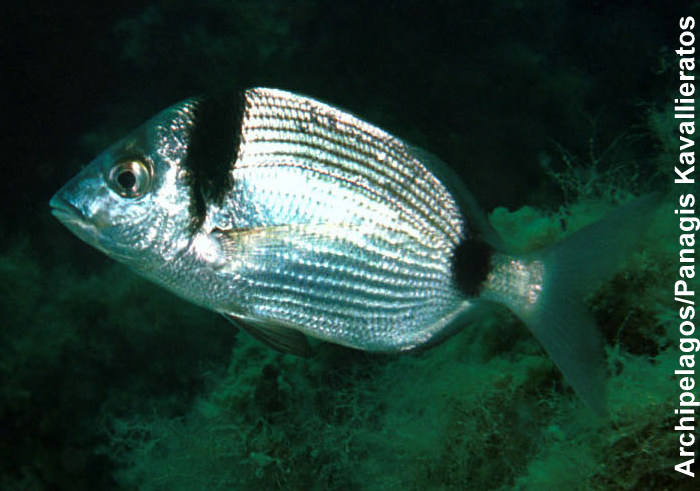
In 2009, we elaborated a one-year programme of environmental education on the marine environment for the primary school of the village of Keramies in Kefalonia. The topics covered ranged from the prevailing physical and chemical conditions in the sea through to relations in the food web and the description of characteristic marine species and habitats.
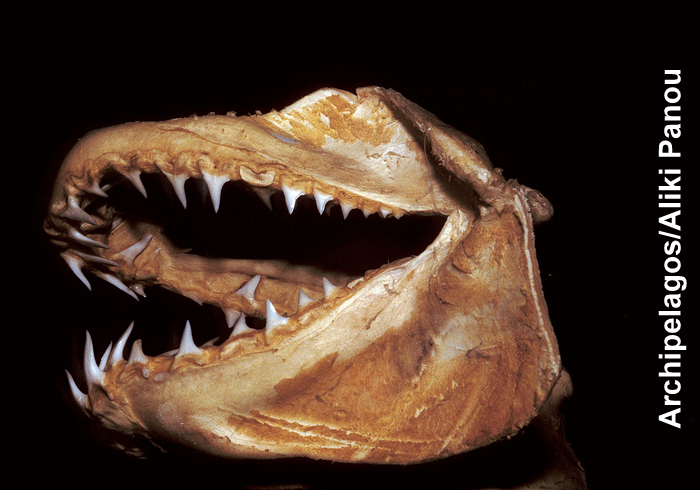
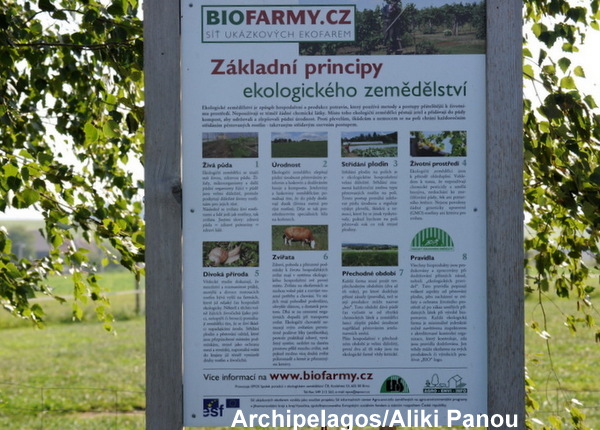
Ιn 2011, we participated in the annual meeting of the «European Network of Organic Agriculture Students» (ENOAS, www.enoas.org, see also above) that took place in the Czech Republic and had the opportunity to be guided to selected organic farms, breweries and wineries.
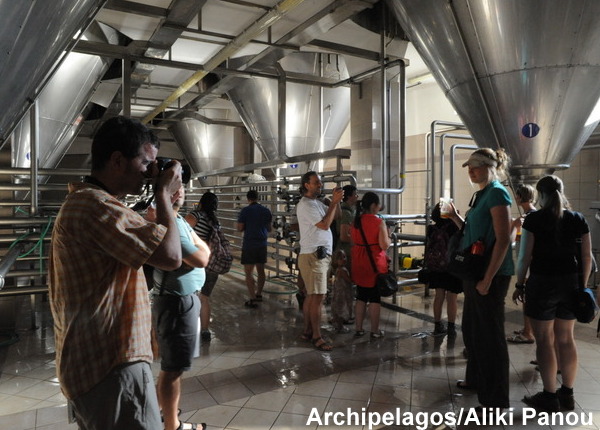
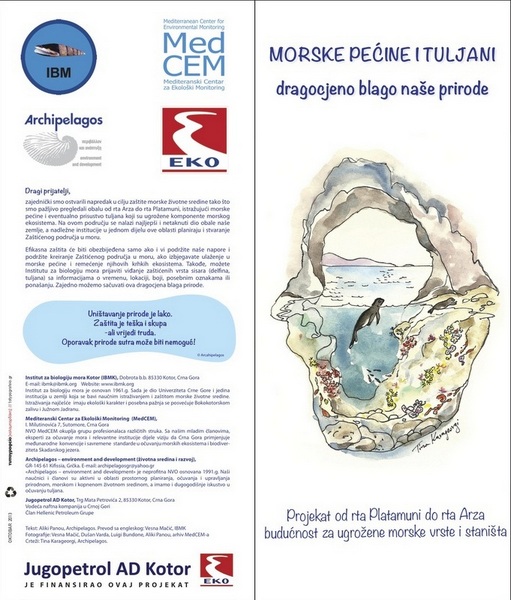
In 2013, within the framework of our project on marine caves in Montenegro, we created a brochure in the local language about these fragile habitats and their value and also about the monk seal, for the schools in the study area.
The brochure was distributed by Dr Vesna Mačić and her colleagues to the schools of all Municipalities of the study area along with talks to the children.
This activity was financed by the company Jugopetrol AD, Montenegro.
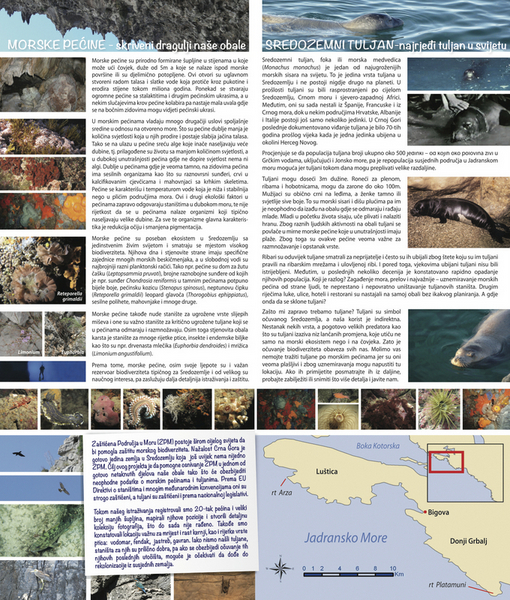
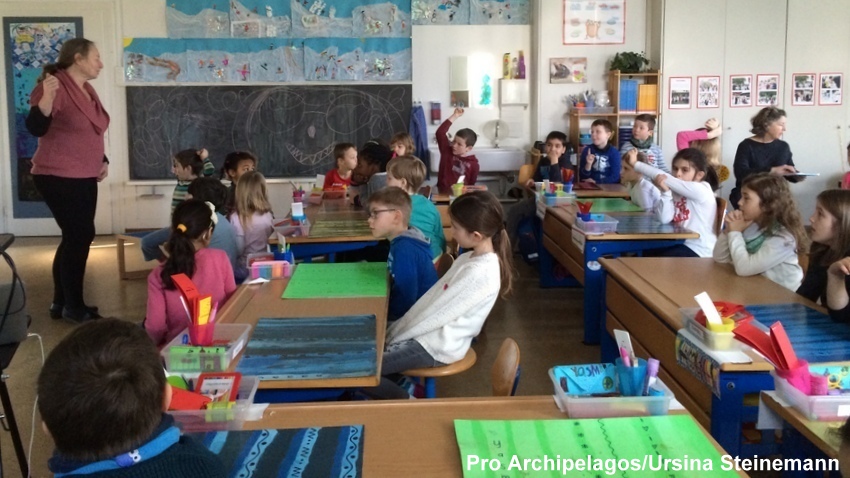
Ιn spring 2014, 2016 and 2017, several lectures were given on environmental issues and on our conservation activities in schools in Switzerland. This activity is planned to be continued in collaboration with the Swiss NGO «Pro Archipelagos».
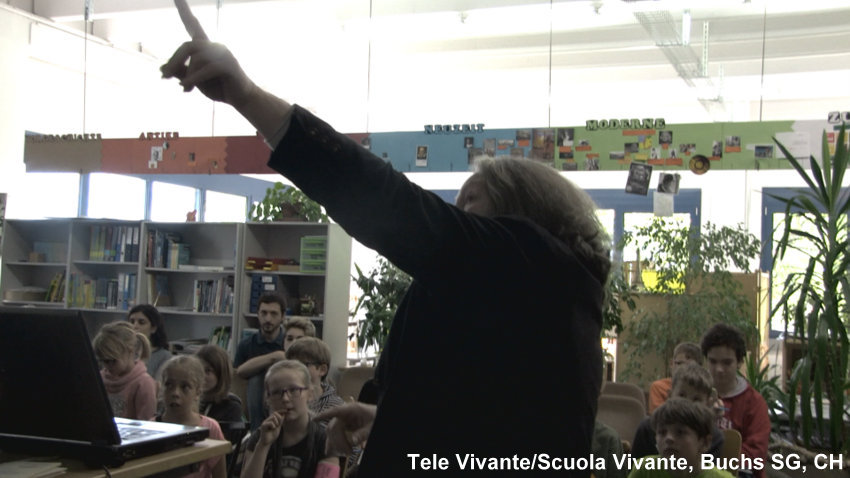
Finally, in 2016, a booklet for children under the title «Teti» on the Mediterranean monk seal, its biology, ecology and the need for its conservation was elaborated in Italian by Luigi Bundone and Valeria Cozzarini, Archipelagos Italia, along with nice drawings. The booklet can be seen οn our website (“Publications” – “Βooklets”).
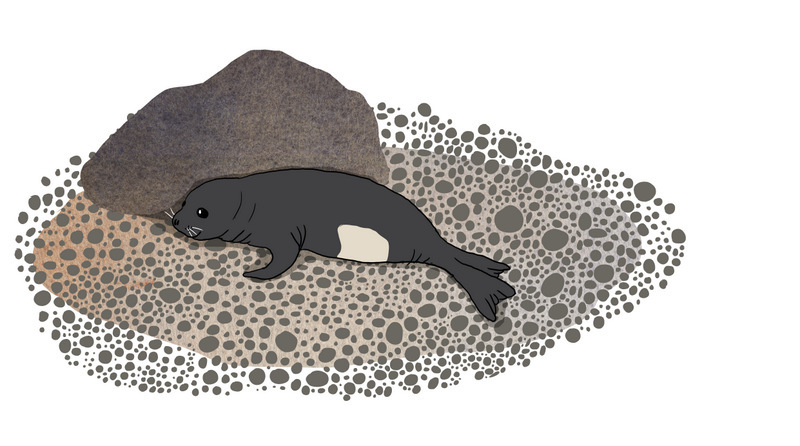
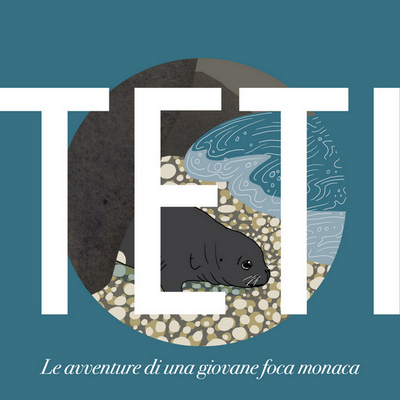
An educated public is the cornerstone and a vital tenet in a democratic country.
Should we fail to give environmental education high priority we will eventually
reach the point where seals, turtles, orchids and bears are only found
in scientific books, stamps and children’s fairy tales.
